Feminist Approaches to Early Medieval English Studies
Scholarship on early medieval England has seen an exponential increase in scholarly work by and about women over the past twenty years, but the field has remained peculiarly resistant to the transformative potential of feminist critique. Since 2016, Medieval Studies has been rocked by conversations about the state of the field, shifting from #MeToo to #WhiteFeminism to the purposeful rethinking of the label “Anglo-Saxonist.” This volume takes a step toward decentering the traditional scholarly conversation with thirteen new essays by American, Canadian, European, and UK professors, along with independent scholars and early career researchers from a range of disciplinary perspectives. Topics range from virginity, women’s literacy, and medical discourse to affect, medievalism, and masculinity. The theoretical and political commitments of this volume comprise one strand of a multivalent effort to rethink the parameters of the discipline and to create a scholarly community that is innovative, inclusive, and diverse.
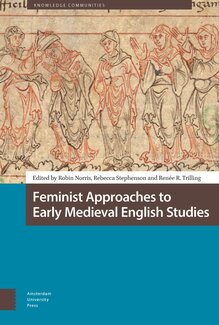
Textual Identities in Early Medieval England: Essays in Honour of Katherine O'Brien O'Keeffe
Throughout her career, Professor Katherine O'Brien O'Keeffe has focused on the often-overlooked details of early medieval textual life, moving from the smallest punctum to a complete reframing of the humanities' biggest questions. In her hands, the traditional tools of medieval studies -- philology, paleography, and close reading - become a fulcrum to reveal the unspoken worldviews animating early medieval textual production. The essays collected here both honour and reflect her influence as a scholar and teacher. They cover Latin works, such as the writings of Prudentius and Bede, along with vernacular prose texts: the Pastoral Care, the OE Boethius, the law codes, the Anglo-Saxon Chronicle, and Ælfric's Lives of Saints. The Old English poetic corpus is also considered, with a focus on less-studied works, including Genesis and Fortunes of Men. This diverse array of texts provides a foundation for the volume's analysis of agency, identity, and subjectivity in early medieval England; united in their methodology, the articles in this collection all question received wisdom and challenge critical consensus on key issues of humanistic inquiry, among them affect and embodied cognition, sovereignty and power, and community formation.
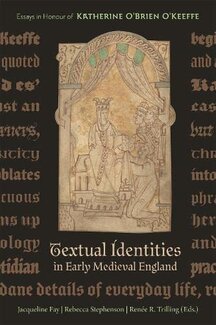
Rare Stuff
"Brett Ashley Kaplan’s novel, Rare Stuff, intertwines whale and human culture in a journey that highlights the need to protect whales and our shared planet. Her support of whale conservation with the proceeds of her novel will ensure the story of whales and our shared ecosystem does not end with her book." Regina Asmutis-Silvia, Executive Director, Whale and Dolphin Conservation
"Rare Stuff is a beautiful, bewitching novel built on interlocking stories: a cosmopolitan photographer named Sid, grieving the death of her father, finds an unfinished manuscript and a suitcase full of clues about the long-ago disappearance of her mother. We follow Sid on a breathless search for her mother, and we dive deep into her father’s unfinished adventure tale, in which Yiddish-speaking whales and a bold teenage girl set out to save the world. By the book’s close, I had become friends with its characters: I wanted to jump into fast-paced conversations about life and literature with Sid, Andre, Dorothy, Aaron, and Sol, and I wanted to take part in the extraordinary multi-generational (and multi-species) community they built together. Rare Stuff tells the story of the very best adventure: the quest we all undertake to understand and care for our parents, our children, and the world we share together." Jamie L. Jones, author of Rendered Obsolete: The Afterlife of U.S. Whaling in the Petroleum Age

Resisting Medical Tyranny: Why the COVID-19 Mandates Are Criminal
Starting with the outbreak of the COVID-19 pandemic, the American people have been continually subjected to an endless stream of totalitarian medical orders by the highest level officials of the United States government and state governments from both political parties; by federal, state, and local public health authorities; by life scientists; and by doctors. This book debunks the scientific basis for their edicts. This book proves that the COVID vaccines and their related mandates violate the Nuremberg Code on Medical Experimentation that the United States government used to prosecute, convict, and execute Nazi doctors at Nuremberg. The COVID vaccines and their related mandates are a Nuremberg Crime against Humanity under international criminal law. This book sets forth legal strategies and arguments for the American people and their lawyers to fight back against this medical tyranny that is being ruthlessly imposed upon us by these scientific and medical elites by using criminal law, constitutional law, and international law. This book is essential reading for any concerned citizen who wants to stop dead in its tracks this developing American medical police state and to hold legally accountable those responsible for the COVID-19 pandemic and its lethal consequences for now one million of their fellow Americans.
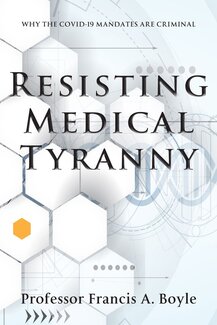
Colonial Racial Capitalism (2022)
The contributors to Colonial Racial Capitalism consider anti-Blackness, human commodification, and slave labor alongside the history of Indigenous dispossession and the uneven development of colonized lands across the globe. They demonstrate the co-constitution and entanglement of slavery and colonialism from the conquest of the New World through industrial capitalism to contemporary financial capitalism. Among other topics, the essays explore the historical suturing of Blackness and Black people to debt, the violence of uranium mining on Indigenous lands in Canada and the Belgian Congo, how municipal property assessment and waste management software encodes and produces racial difference, how Puerto Rican police crackdowns on protestors in 2010 and 2011 drew on decades of policing racially and economically marginalized people, and how historic sites in Los Angeles County narrate the Mexican-American War in ways that occlude the war’s imperialist groundings. The volume’s analytic of colonial racial capitalism opens new frameworks for understanding the persistence of violence, precarity, and inequality in modern society.
Contributors. Joanne Barker, Jodi A. Byrd, Lisa Marie Cacho, Michael Dawson, Iyko Day, Ruth Wilson Gilmore, Alyosha Goldstein, Cheryl I. Harris, Kimberly Kay Hoang, Brian Jordan Jefferson, Susan Koshy, Marisol LeBrón, Jodi Melamed, Laura Pulido
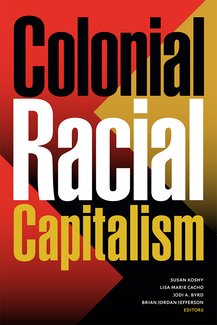
Revolutionary Life: The Everyday of the Arab Spring
From the standpoint of revolutionary politics, the Arab Spring can seem like a wasted effort. In Tunisia, where the wave of protest began, as well as in Egypt and the Gulf, regime change never fully took hold. Yet if the Arab Spring failed to disrupt the structures of governments, the movement was transformative in farms, families, and factories, souks and schools.
Seamlessly blending field research, on-the-ground interviews, and social theory, Asef Bayat shows how the practice of everyday life in Egypt and Tunisia was fundamentally altered by revolutionary activity. Women, young adults, the very poor, and members of the underground queer community can credit the Arab Spring with steps toward equality and freedom. There is also potential for further progress, as women’s rights in particular now occupy a firm place in public discourse, preventing retrenchment and ensuring that marginalized voices remain louder than in prerevolutionary days. In addition, the Arab Spring empowered workers: in Egypt alone, more than 700,000 farmers unionized during the years of protest. Labor activism brought about material improvements for a wide range of ordinary people and fostered new cultural and political norms that the forces of reaction cannot simply wish away.
In Bayat’s telling, the Arab Spring emerges as a paradigmatic case of “refolution”—revolution that engenders reform rather than radical change. Both a detailed study and a moving appeal, Revolutionary Life identifies the social gains that were won through resistance.
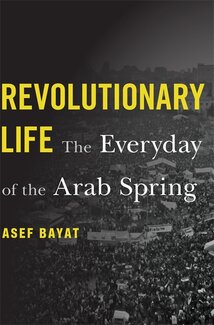
The Lockean Mind
John Locke (1632–1704) is considered one of the most important philosophers of the modern era and the first of what are often called ‘the Great British Empiricists.’ His major work, An Essay Concerning Human Understanding, was the single most widely read academic text in Britain for fifty years after its publication and set new limits to the scope and certainty of what we can claim to know about ourselves and the natural world. The Declaration of Independence and the United States Constitution were both highly influenced by Locke’s libertarian philosophical ideas, and Locke continues to have an impact on political thought, both conservative and liberal. It is less commonly known that Locke was a practicing physician, an influential interpreter of the Bible, and a policy maker in the English Carolina colonies.
The Lockean Mind provides a comprehensive survey of Locke’s work, not only placing it in its historical context but also exploring its contemporary significance. Comprising almost sixty chapters by a superb team of international contributors, the volume is divided into twelve parts covering the full range of Locke’s thought:
- Historical Background
- Locke’s Interlocutors
- Locke’s Epistemology
- Locke’s Philosophy of Mind
- Locke on Philosophy of Language and Logic
- Locke’s Metaphysics
- Locke’s Natural Philosophy
- Locke’s Moral Philosophy
- Locke on Education
- Locke’s Political Philosophy
- Locke’s Social Philosophy
- Locke on Religion
Essential reading for students and researchers in philosophy, Locke’s work is central to epistemology; metaphysics; philosophy of mind; philosophy of language; natural philosophy; ethical, legal-political, and social philosophy; as well as philosophy of education and philosophy of religion. This volume will also be a valuable resource to those in related humanities and social sciences disciplines with an interest in John Locke.
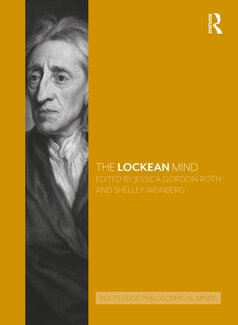
Tree of Pearls: The Extraordinary Architectural Patronage of the 13th-Century Egyptian Slave-Queen Shajar al-Durr
The woman known as “Tree of Pearls” ruled Egypt in the summer of 1250. A rare case of a woman sultan, her reign marked the shift from the Ayyubid to the Mamluk dynasty, and her architectural patronage of two building complexes had a lasting impact on Cairo and on Islamic architecture. Rising to power from slave origins, Tree of Pearls—her name in Arabic is Shajar al-Durr—used her wealth and power to add a tomb to the urban madrasa (college) that had been built by her husband, Sultan Salih, and with this innovation, madrasas and many other charitably endowed architectural complexes became commemorative monuments, a practice that remains widespread today. This was the first occasion in Cairo in which a secular patron’s relationship to his architectural foundation was reified through the actual presence of his body. The tomb thus profoundly transformed the relationship between architecture and its patron, emphasizing and emblematizing his historical presence. Indeed, the characteristic domed skyline of Cairo that we see today is shaped by such domes that have kept the memory of their named patrons visible to the public eye. This dramatic transformation, in which architecture came to embody human identity, was made possible by the sultan-queen Shajar al-Durr, a woman who began her career as a mere slave-concubine. Her path-breaking patronage contradicts the prevailing assumption among historians of Islam that there was no distinctive female voice in art and architecture.
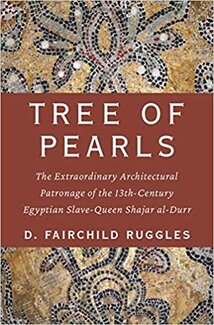
Formless Formation: Vignettes for the End of this World
Formless Formation is an experimental project conceived and co-authored by two performance theorists working in critical aesthetics and political thought. The book is an insurgent revolt, walking side by side with plural and planetary anticolonial forces organizing against debt, expropriative extractive capital, environmental catastrophe, and the militarized policing of people and borders. It is in direct conversation with all Indigenous, Black, Brown, ecological, feminist, queer, diaspora movements and struggles countering capitalist predatory formations across time and space. Through shared resonances across differing aesthetic-life-worlds and solidarities that bypass the nation-state, Ruiz and Vourloumis bring to the forefront performative and aesthetic practices and methods that address current and future social organizing.
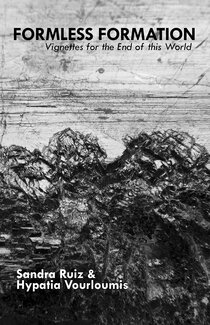
The Edinburgh Companion to Irish Modernism
The Edinburgh Companion to Irish Modernism presents a fresh perspective on received understandings of Irish modernism. The introduction draws connections between modernism in the arts and modernism as a resistant, liberal, relativist movement within the Catholic Church that was gathering momentum in the same period. In religion as in culture, resistance to orthodoxy has persisted, and for this reason this companion explores modernist heresies – cultural, aesthetic, critical, epistemological – that stretch back to the late nineteenth-century and forward to present day. Contributors widen the temporal, conceptual, generic, and geographical definitions of Irish modernism by investigating crosscurrents between literary form and cultural transformation through the twentieth and twenty-first centuries. The book enriches the canon of Irish modernism by recovering lesser-known works by both neglected and canonical writers, especially women poets and novelists.
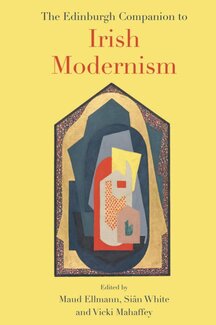
100 English Building
608 South Wright Street
Urbana, Illinois 61801